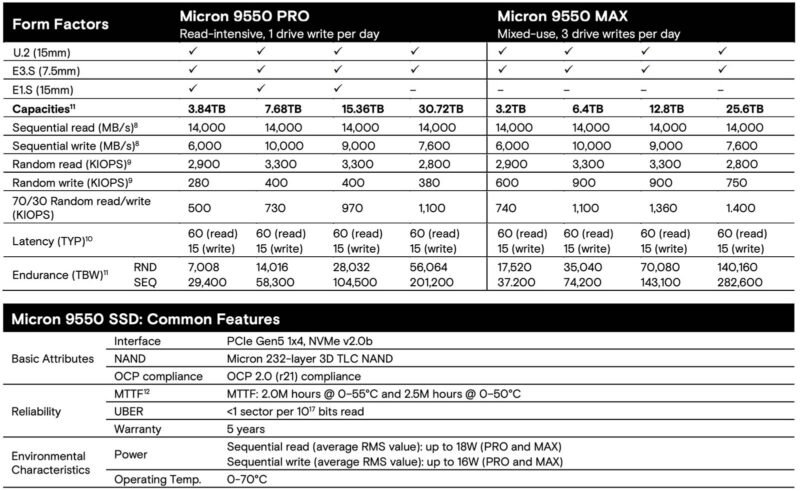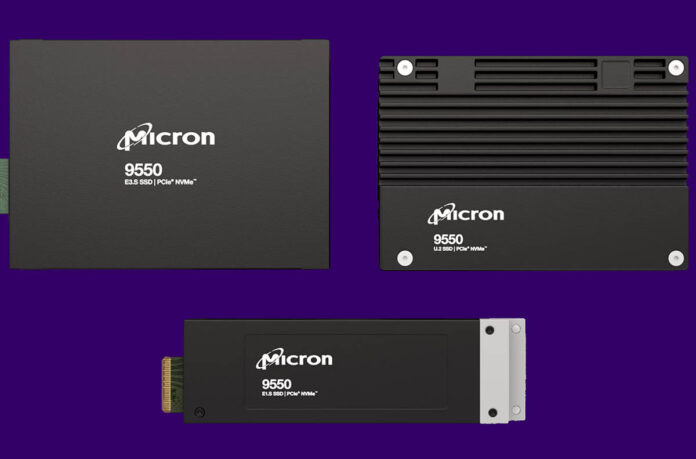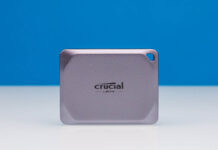Micron has a new series of PCIe Gen5 NVMe SSDs that it claims are the fastest on the market. These SSDs tend to be used in the performance tier of AI clusters in front of slower SSD or HDD clusters. As that market heats up, we are seeing SSD vendors launch high-performance offerings. If you think that this is a bit late in the PCIe Gen5 cycle since we looked at Kioxia CM7 PCIe Gen5 NVMe SSDs several quarters ago, that is the case. Storage has been moving at a much slower development pace than AI accelerators and networking lately. Still, the advancements in other areas are pushing SSD development, hence why we are getting a new PCIe Gen5 NVMe SSD.
New Micron 9550 PCIe Gen5 NVMe SSD Launched
As we have seen with other Micron drives, there are Pro and Max variants of the drives. The Pro versions tend to offer more capacity while the Max versions tend to offer higher performance and endurance. In the below spec table, one can see the differences especially in the 4K random write and write endurance ratings. Those differences also correspond to lower capacity on the Max.

These drives are still TLC NAND, not QLC. Thus, we do not get a generational improvement in capacities. We previously looked at the 30.72TB Micron 9400 Pro about a year and a half ago.
In terms of raw capacity, we know big SSDs are selling well. Solidigm is selling the 61.44TB SSDs that we reviewed like crazy. Samsung has taken notice, announcing its own 61.44TB and potential future 122.88TB SSDs. Those are in a very hot segment as hard drive displacement capacity NVMe storage. Micron’s 9500 series is more focused on maximum performance and reasonable capacity from a non-SLC drive.
Final Words
Hopefully, we get to test the Micron 9550 Pro soon. We have a number of enterprise NVMe SSD reviews in the works, and an update to our 2016 Used enterprise SSDs: Dissecting our production SSD population piece coming as well. It will be interesting to see if buyers gravitate towards the Pro or Max series since many AI workloads depend less on 4K random write speeds.




